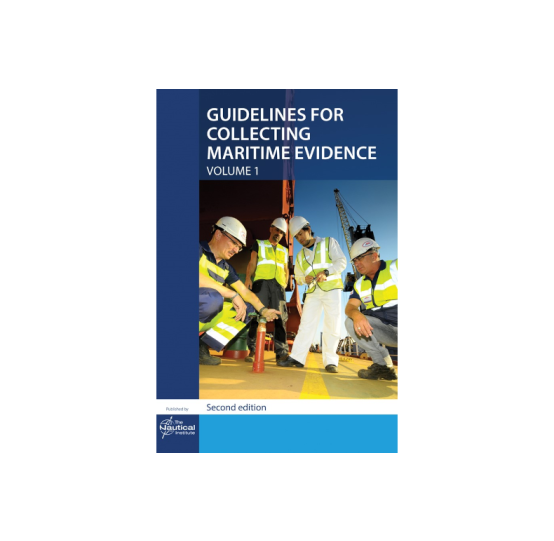Guidelines for Collecting Maritime Evidence, Vol 1 (Second Edition)
What happens after a maritime incident? Masters, crew and management ashore must collect evidence that satisfies the needs of shipowners, ship managers, insurers, flag states, port states and other statutory and regulatory bodies. All these bodies have different requirements and priorities.
Used in conjunction with Guidelines for Collecting Maritime Evidence Volume 2, this book explains all that mariners need to know about fulfilling these evidence requirements while protecting a multitude of interests and without compromising safety and the environment. This series provides Masters, officers and crew the knowledge to collect, secure and preserve evidence, consistent with ISM Code and other regulatory requirements. In this book, a state safety investigator, Master, insurers, surveyor, lawyer and arbitrator each describe evidence collection from their own expert perspective.
The use and challenges of artificial intelligence and electronically obtained evidence are discussed as well as the need to protect evidence from disclosure in case of future dispute or litigation.
Included in this new edition:
- Extensive incident checklists
- The no-blame approach to state safety investigations
- The surveyor’s perspective and the P&I approach
- Evidence for insurance claims


